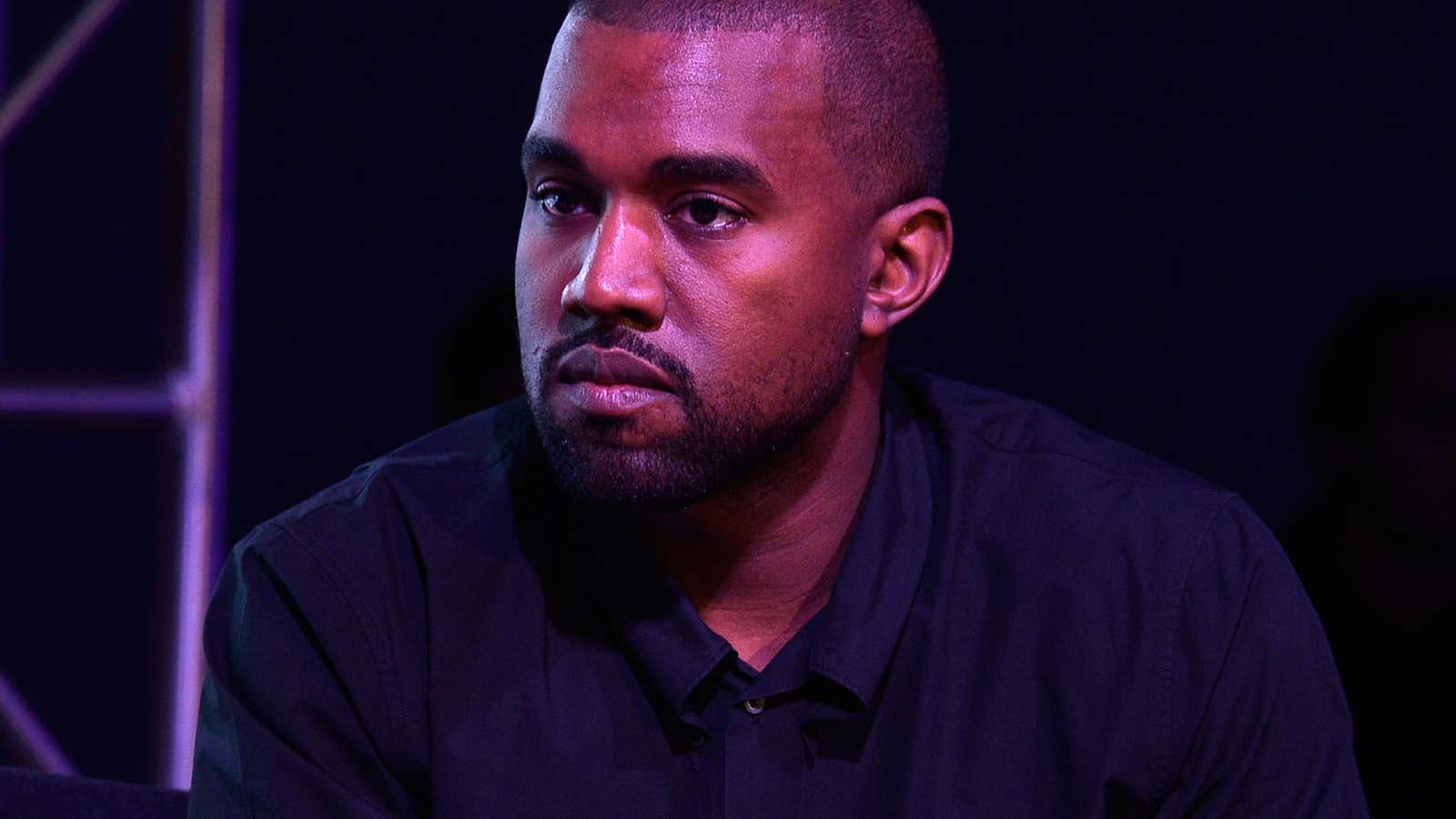After the rapper Ye—formerly known as Kanye West—posted antisemitic content on Instagram, the social media platform locked his account.
Twitter seems poised to take a different approach, judging by the reactions of its soon-to-be-owner Elon Musk.
After Instagram banned Ye, the rapper took to Twitter to complain. In his first tweet since 2020, he posted a picture of himself with Mark Zuckerberg, who is CEO of Instagram’s parent company—and Jewish.
Musk, a friend of Ye, immediately responded to the tweet: “Welcome back to Twitter my friend.”
Musk has said he wants to let people say whatever they want on Twitter (as long as it adheres to local laws). When he owns the platform—which could happen in the next few weeks—he wants to eliminate content moderation policies like the ones that resulted in Instagram locking Ye’s account. Instagram’s community guidelines prohibit hate speech and targeted harassment based on race or religion.
But Musk’s recent exchange with Ye is emblematic of the tension between the billionaire’s plans and what’s likely to happen. Content rules exist for a reason and Musk is going to learn that sooner or later. After getting the Musk welcome to Twitter, Ye posted another antisemitic screed:
“I’m a bit sleepy tonight but when I wake up I’m going death con 3 On JEWISH PEOPLE The funny thing is I actually can’t be Anti Semitic because black people are actually Jew also You guys have toyed with me and tried to black ball anyone whoever opposes your agenda.”
Musk responds to Ye
Musk replied once more to the same post. “Talked to ye today & expressed my concerns about his recent tweet, which I think he took to heart,” Musk wrote.
So far, there’s no sign that Ye, who has spent the week posting antisemitic stereotypes and threats on the internet and wearing a “White Lives Matter” t-shirt to his daughter’s basketball game, took Musk’s comments to heart.
What is clear is that Musk’s finger-wagging is not a scalable approach to content moderation on Twitter.
In recent years, Twitter has added some common-sense rules and processes to limit problematic content such as vaccine misinformation and hate speech on the platform. The company labels synthetic images and state-run accounts, and has a program where average users can discuss fact-checks on a post. Musk has signaled that he will scale back these tools and whittle down Twitter’s trust and safety team (which is in charge of content moderation). He also wants to restore Donald Trump’s account after the former president was banned for inciting violence at the US Capitol on Jan. 6, 2021.
But Musk is going to learn quickly that he can’t just call up all of the racists, antisemites, and authoritarian leaders tweeting garbage on his website. He needs clear rules and enforcement—or Twitter will become a cesspool of hate, spam, and garbage.
